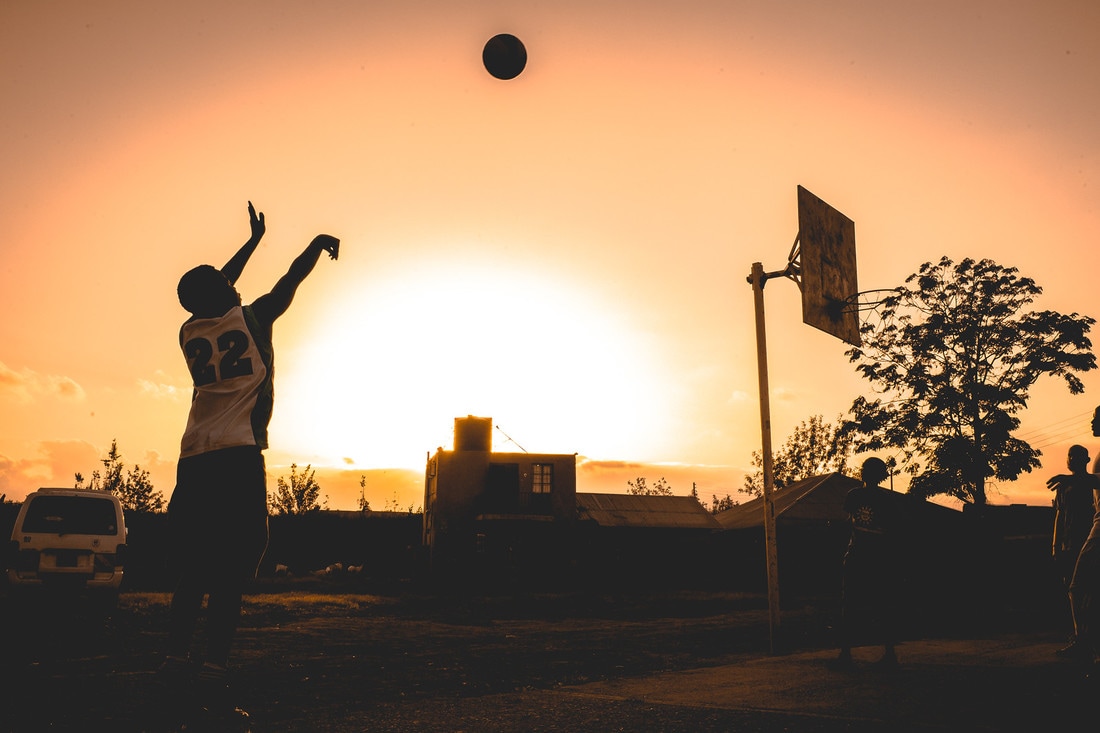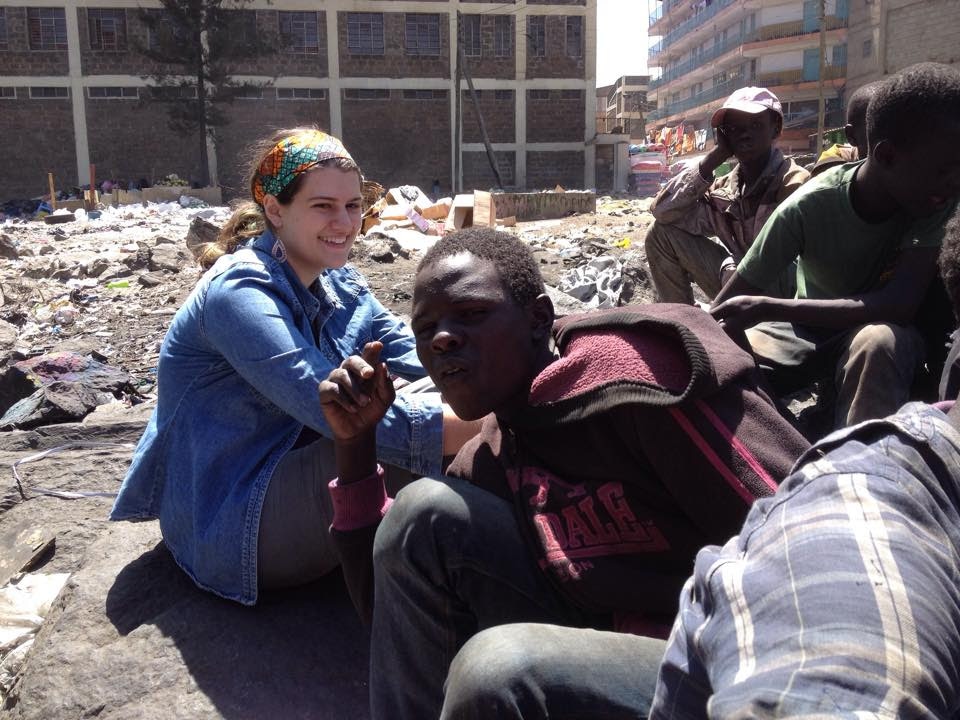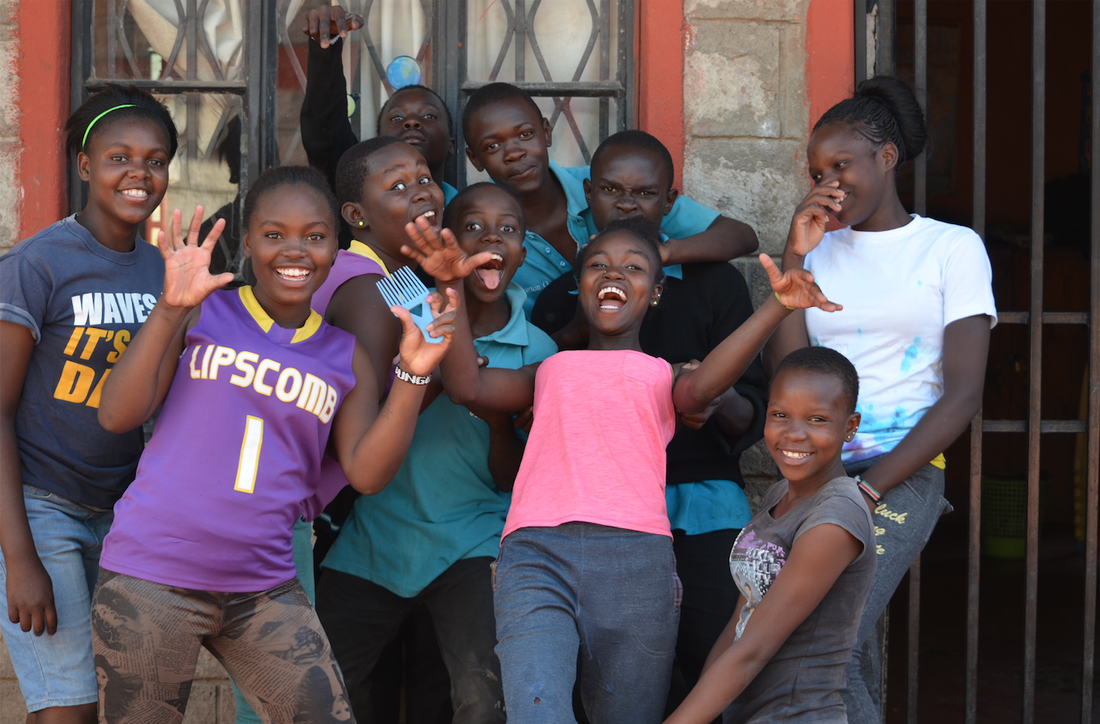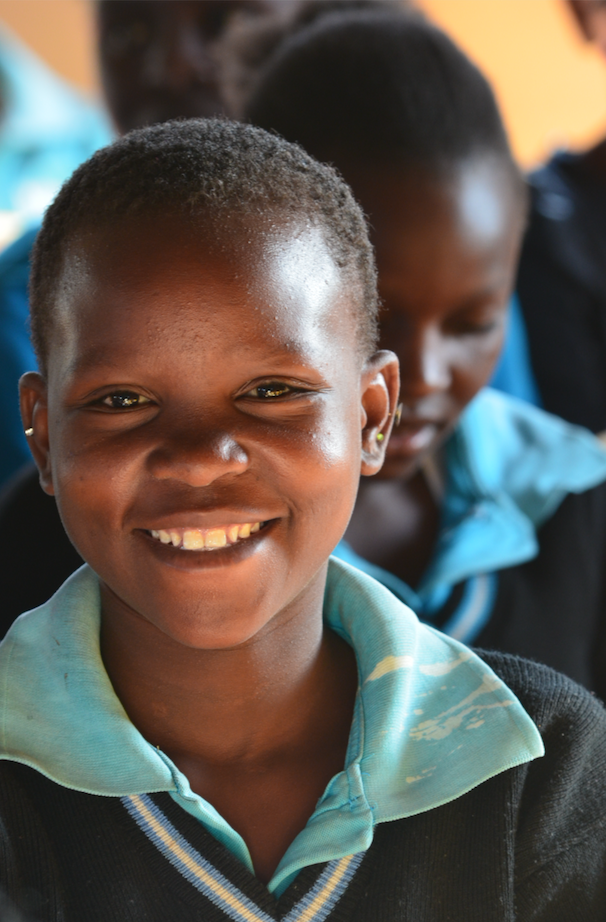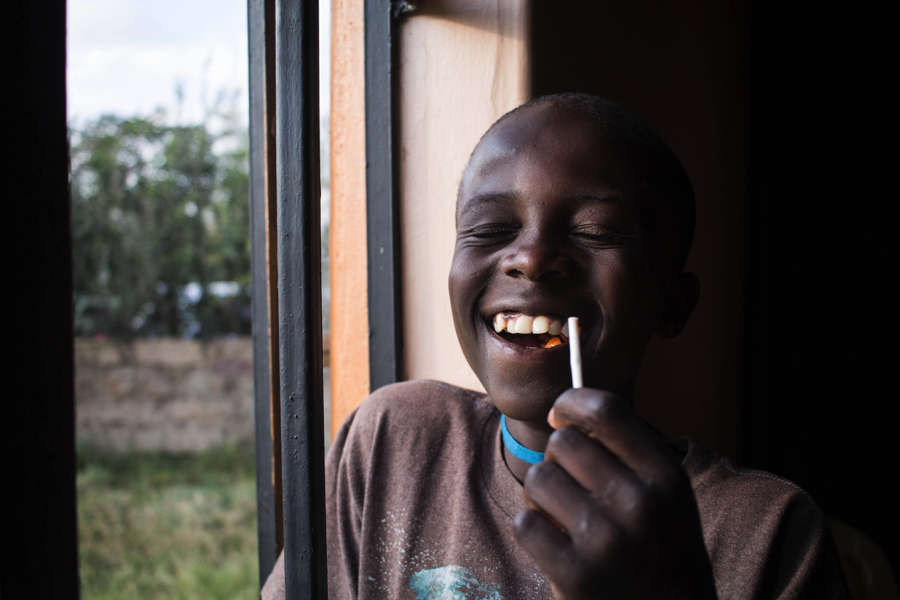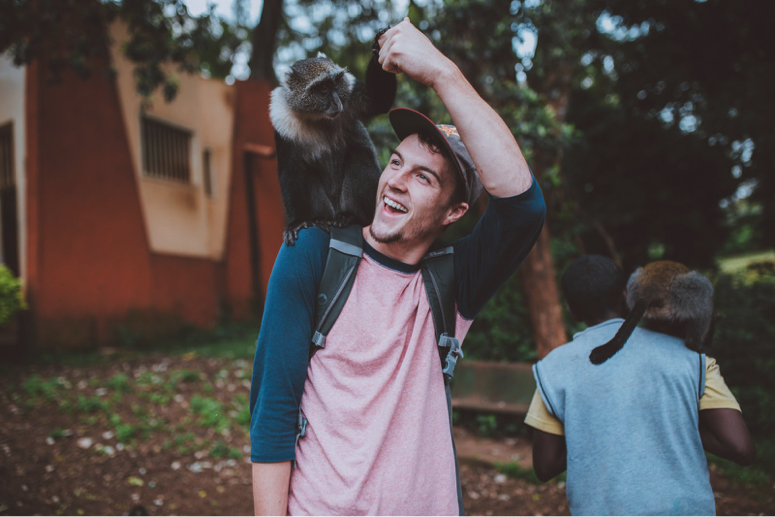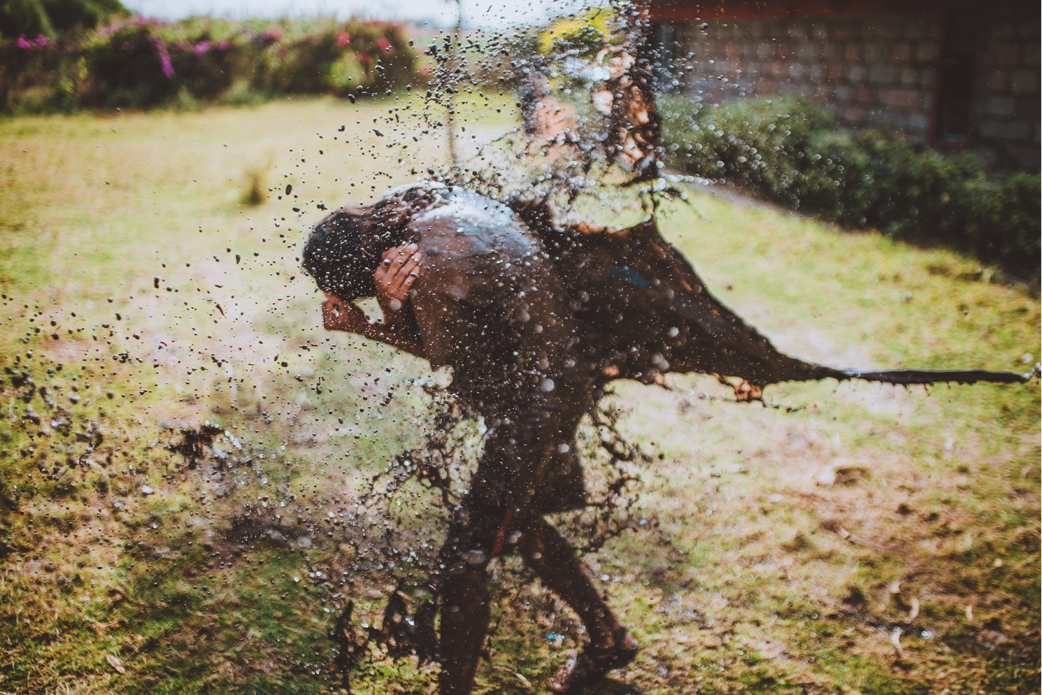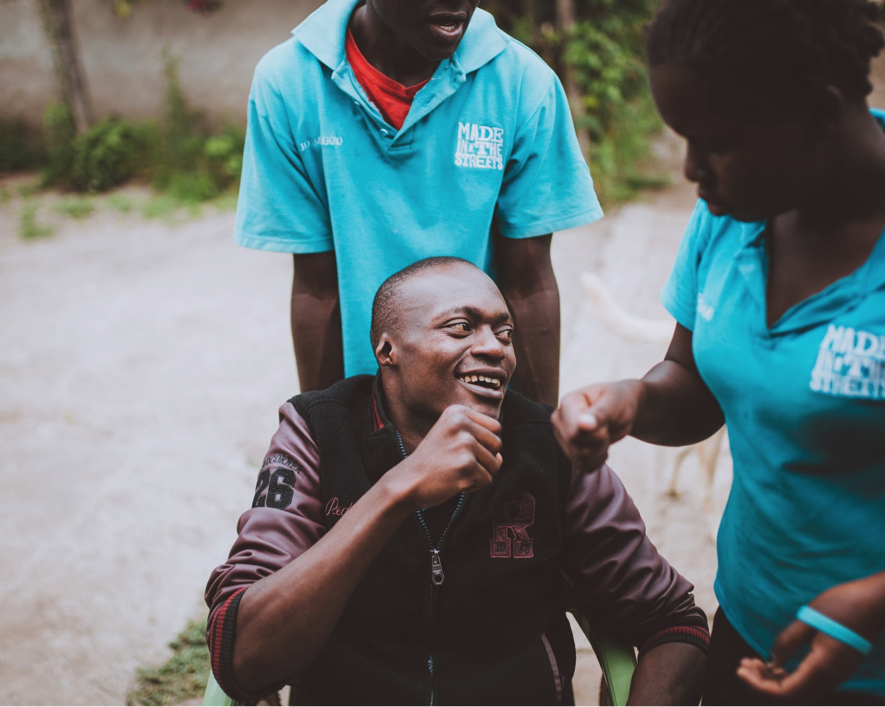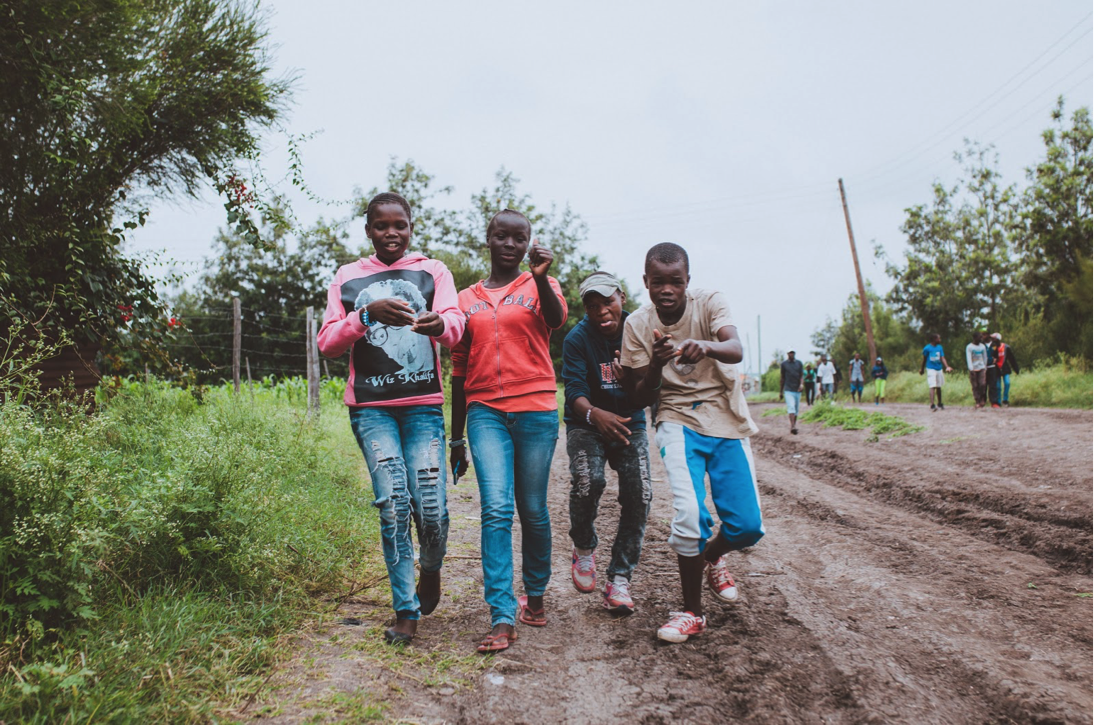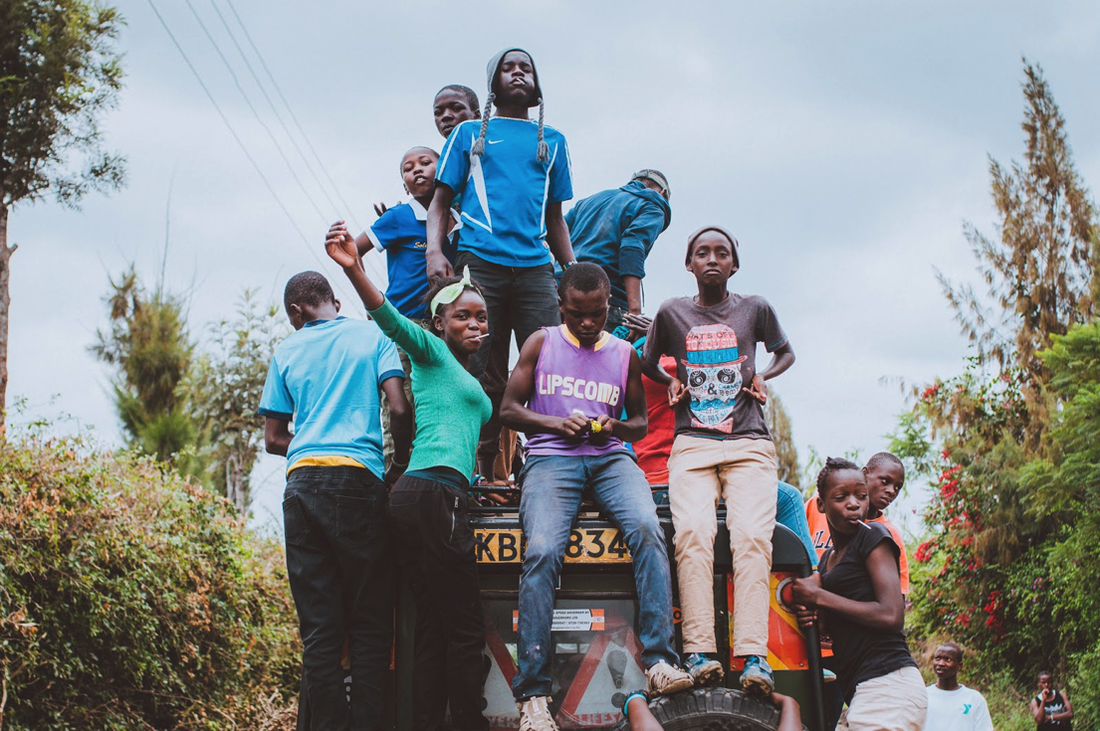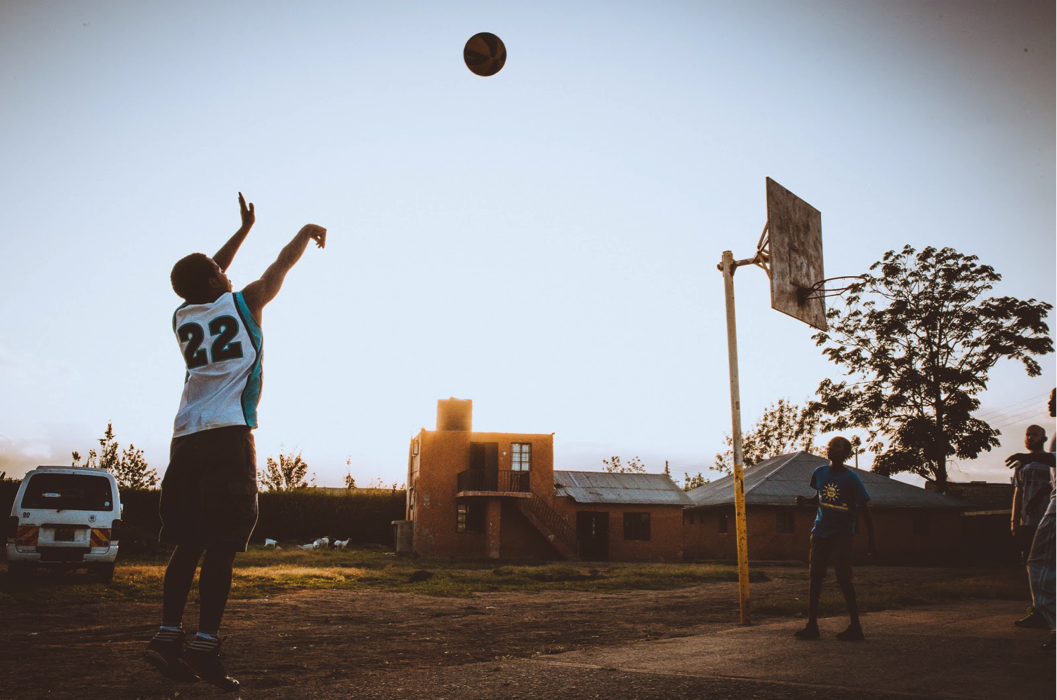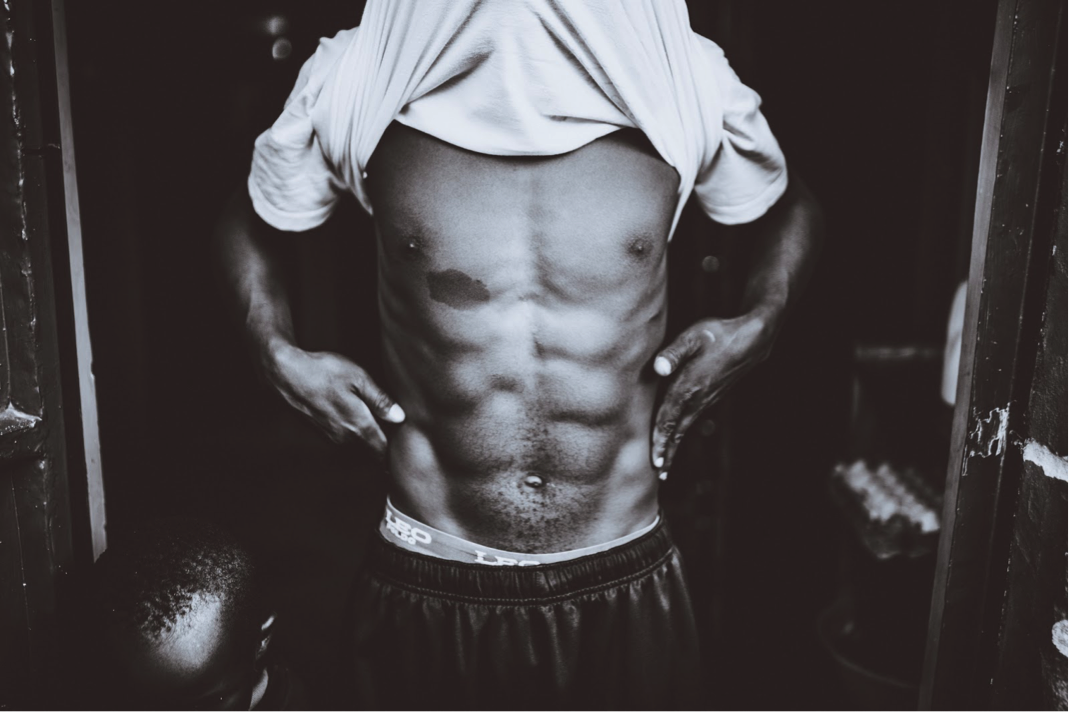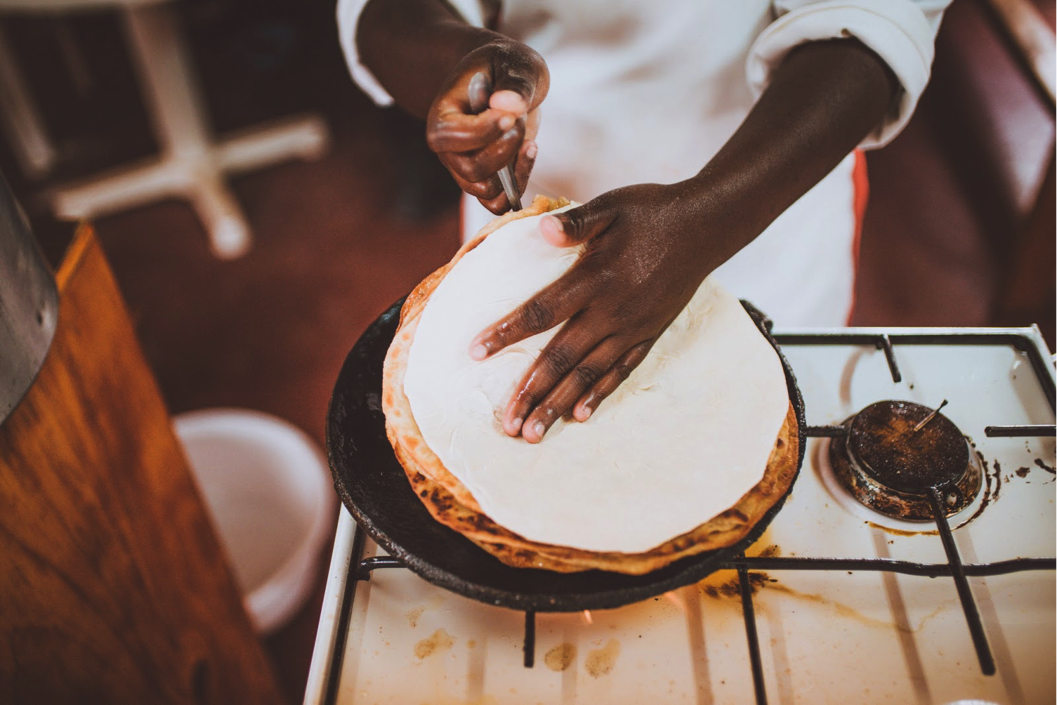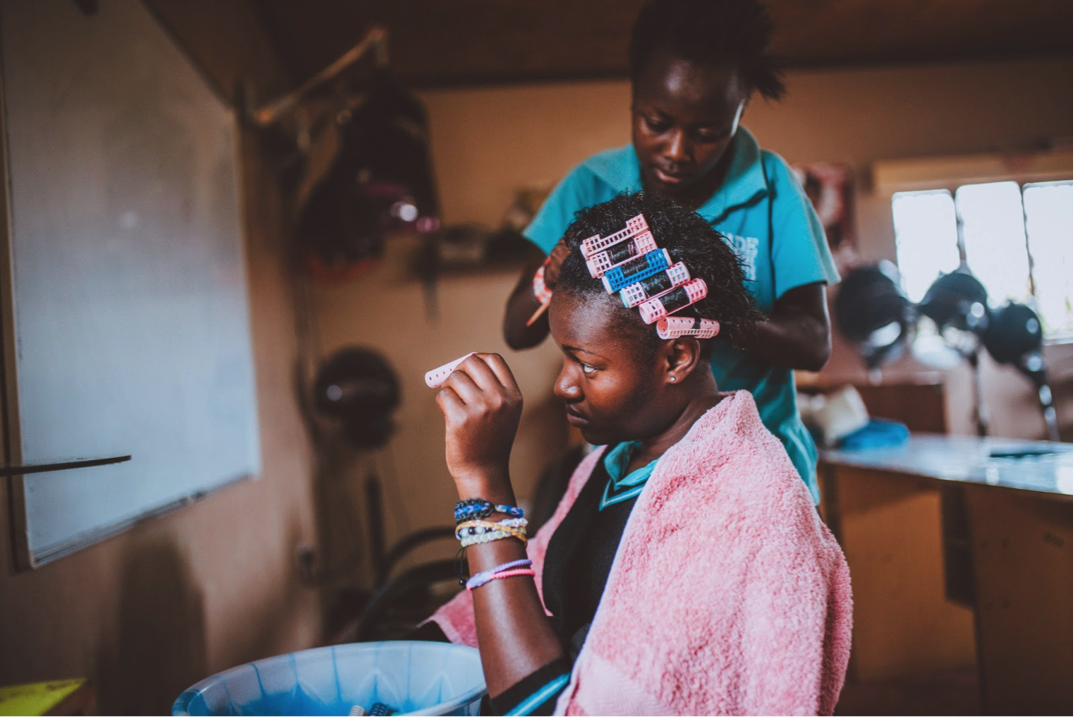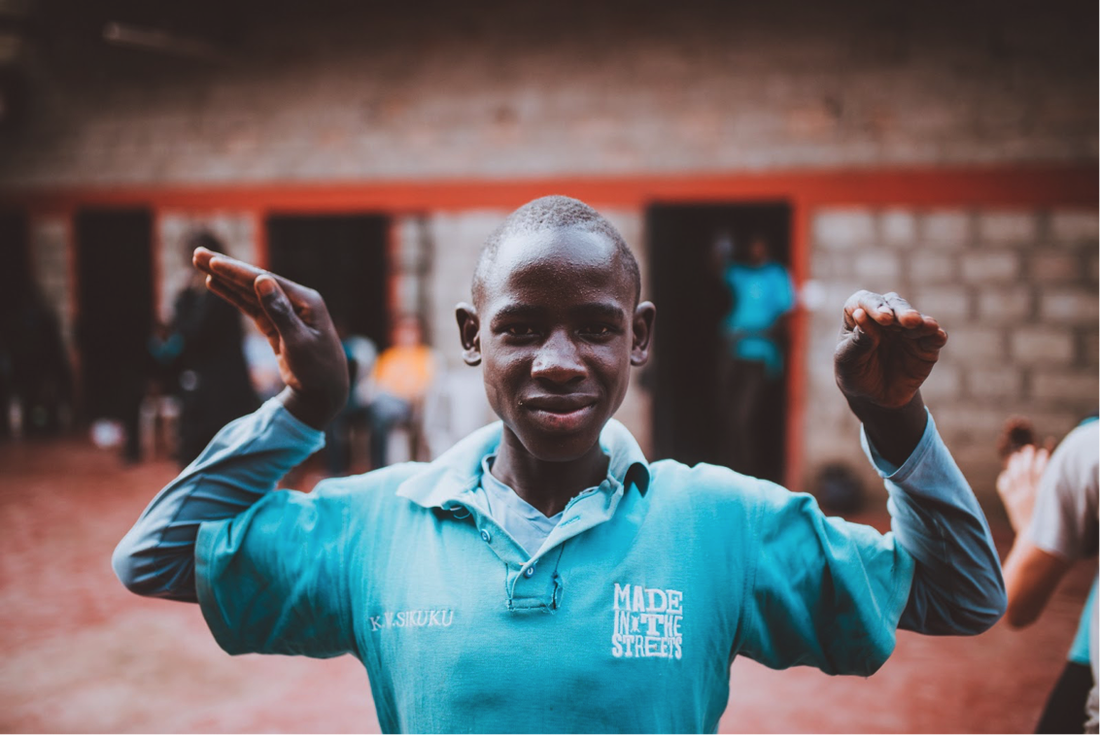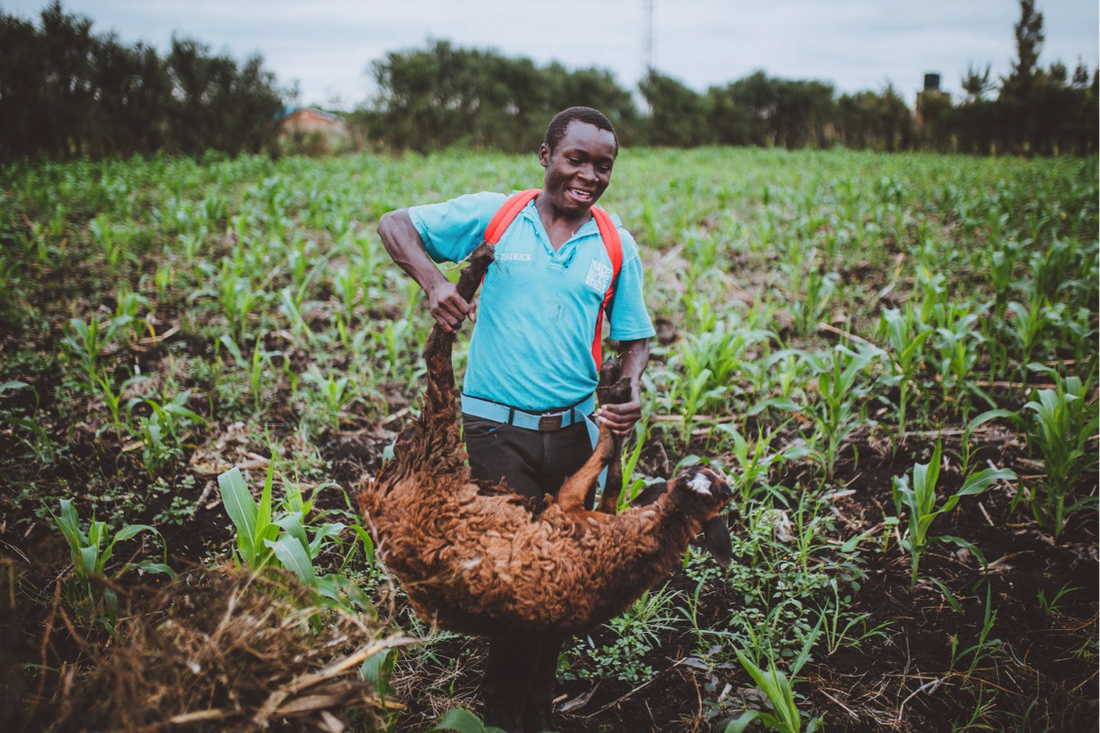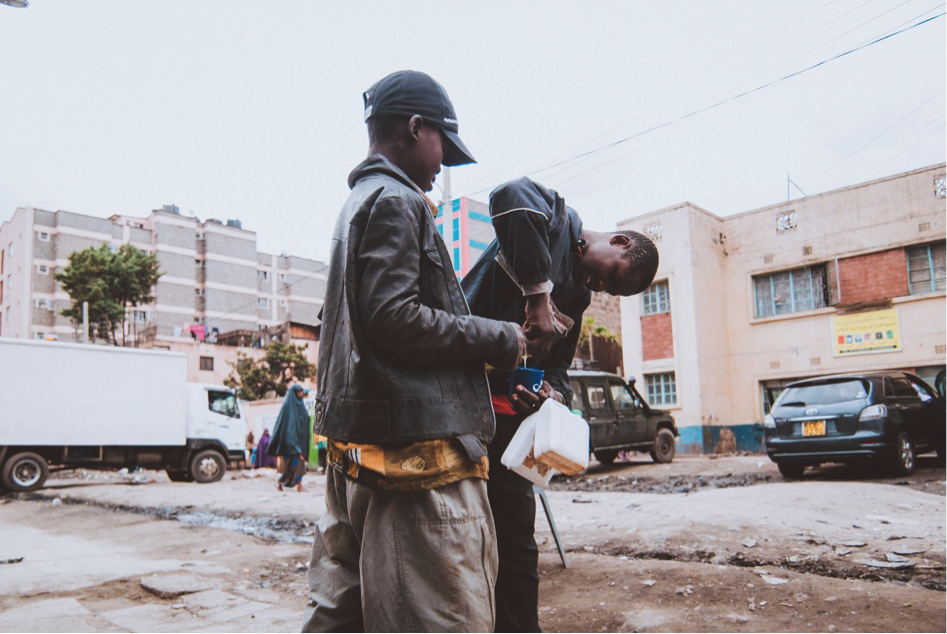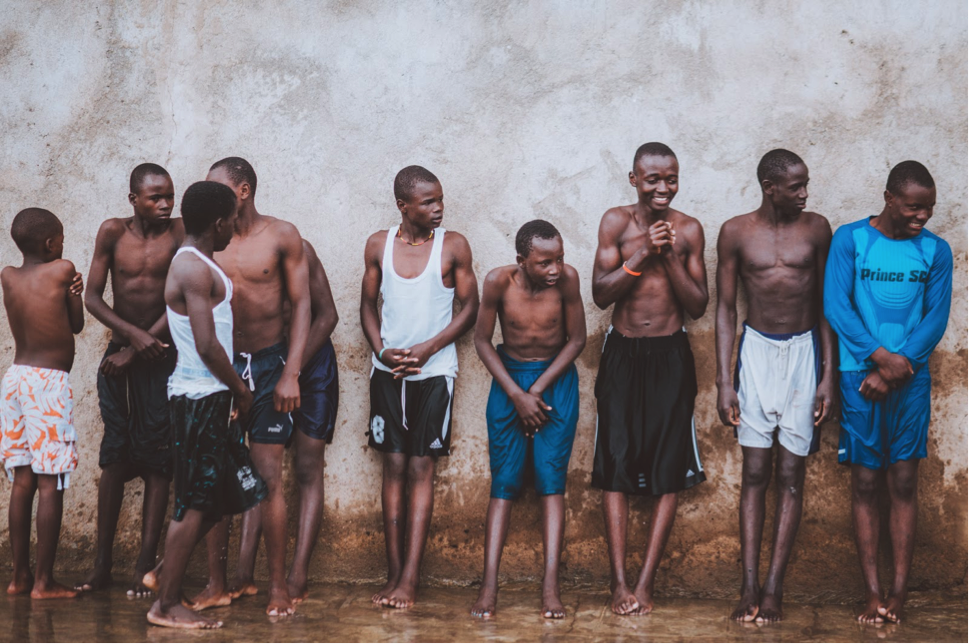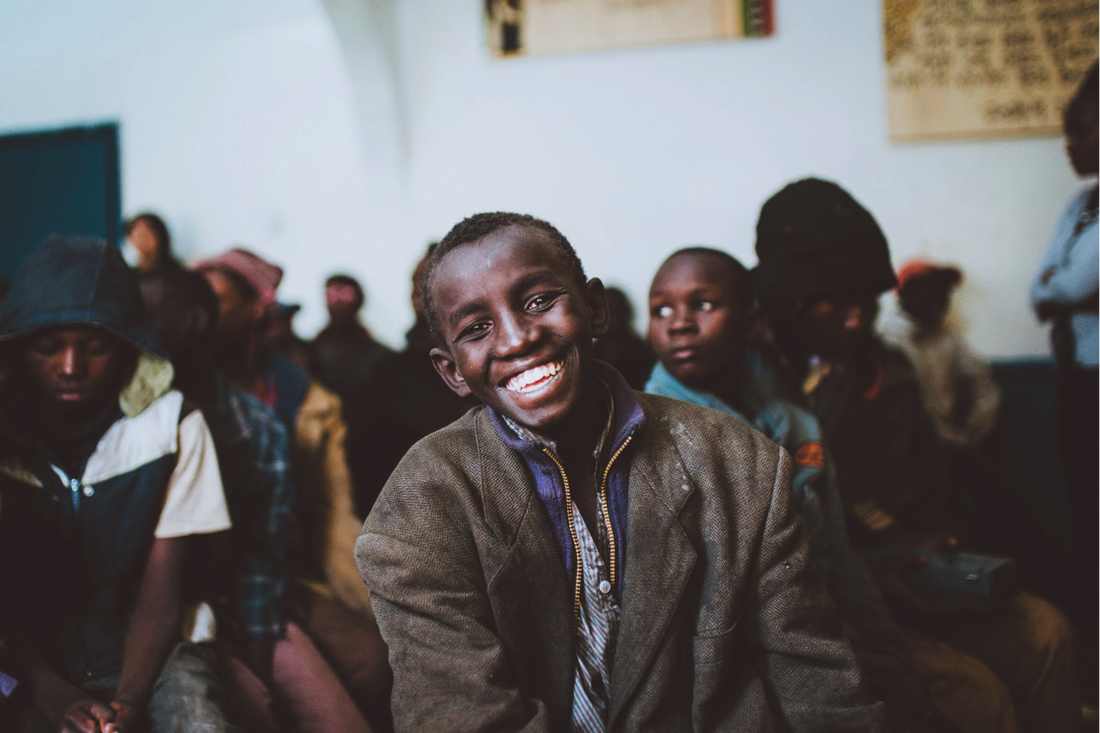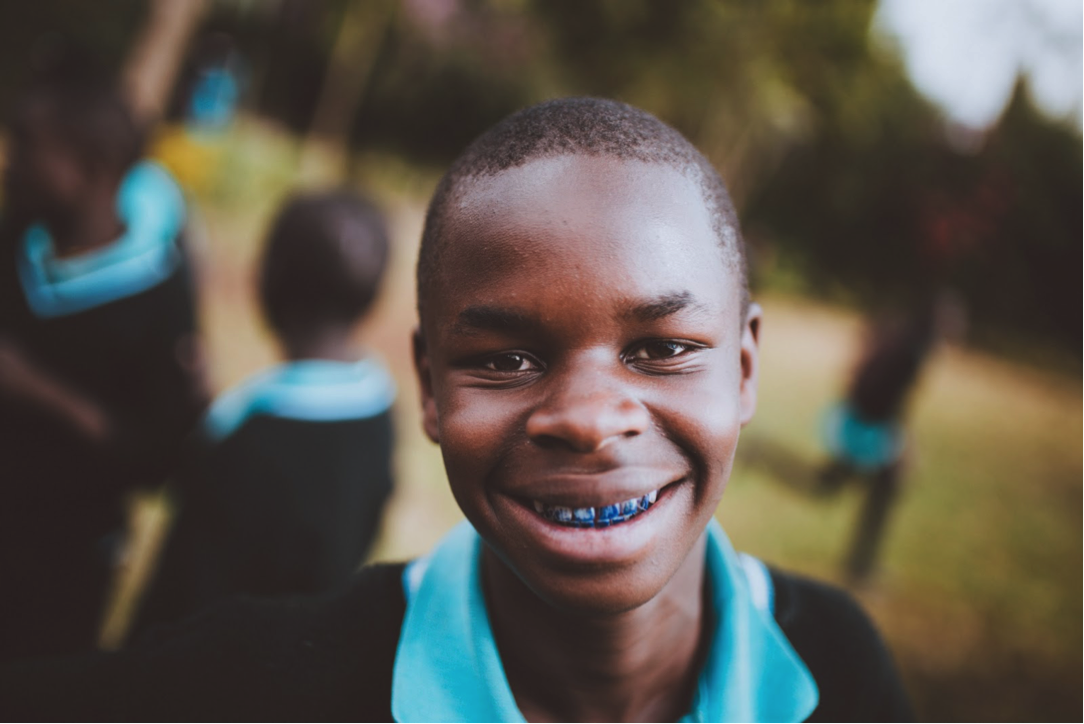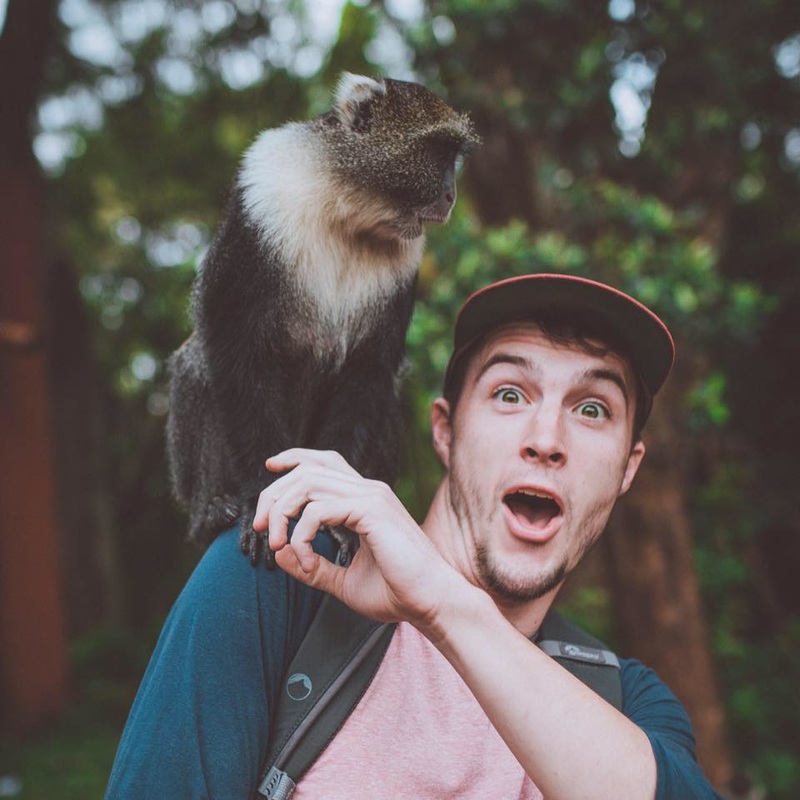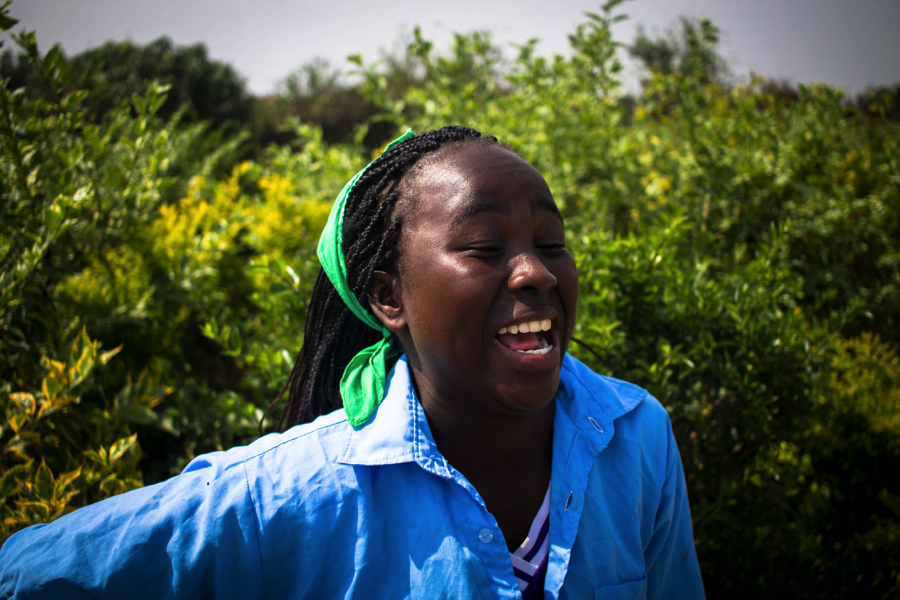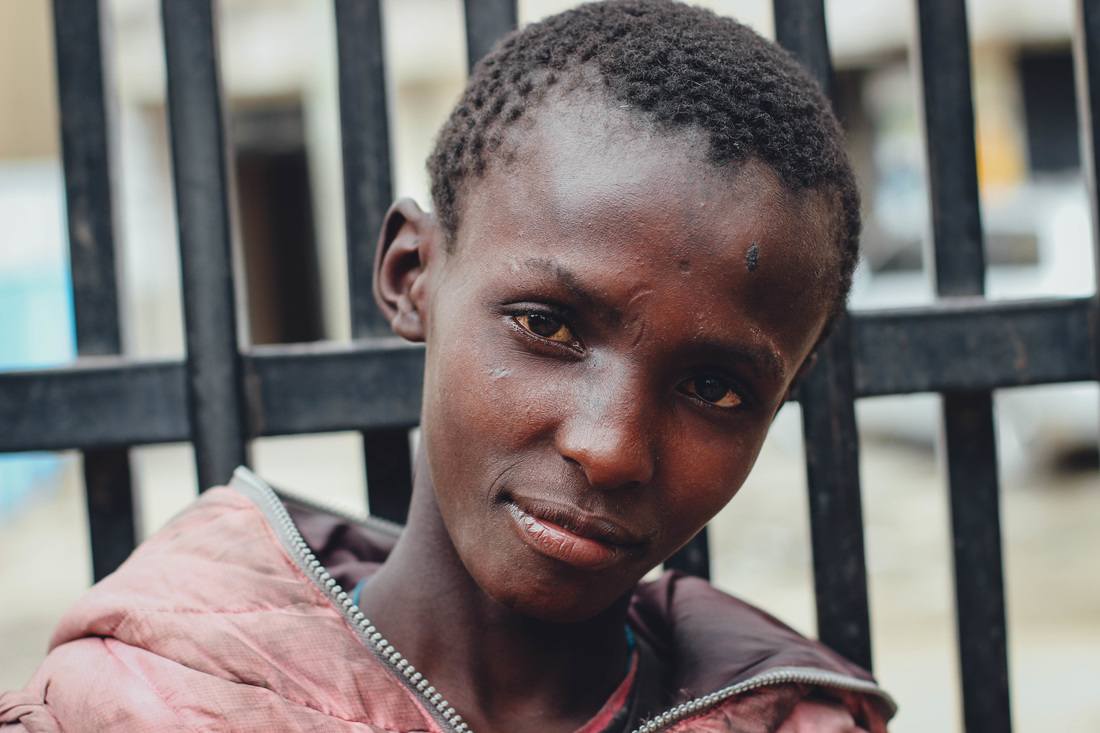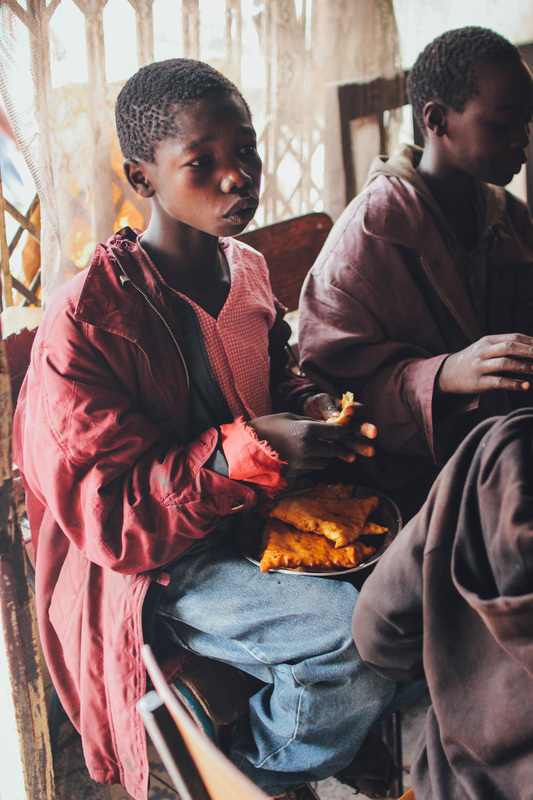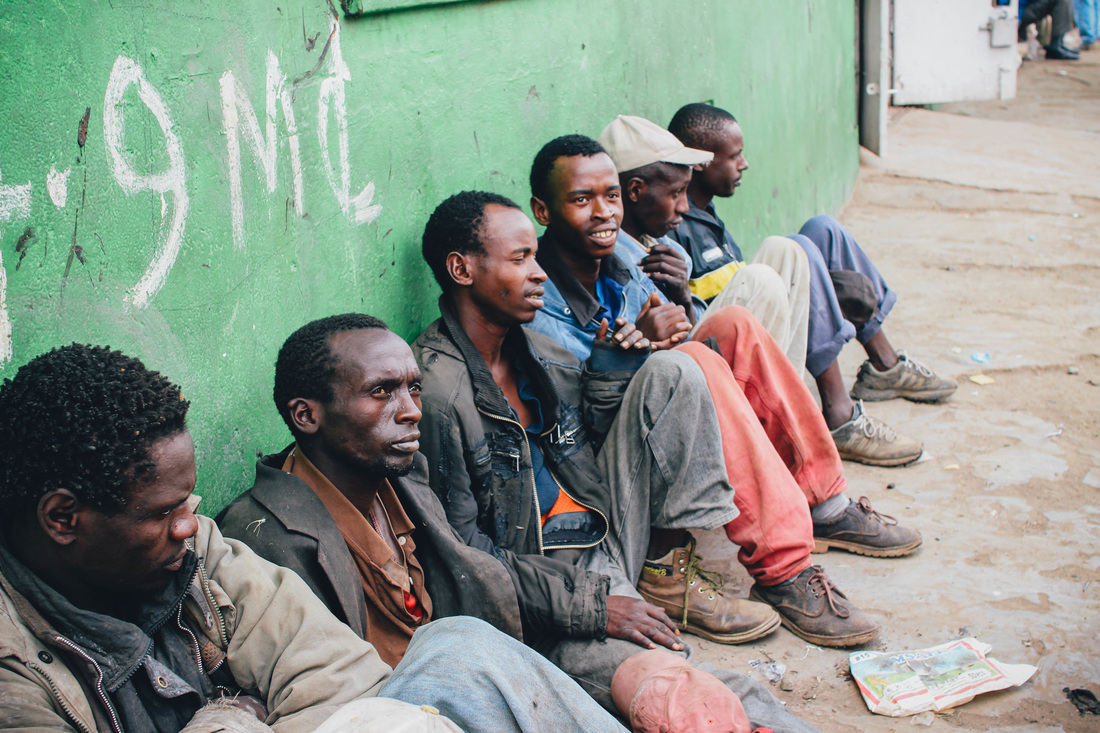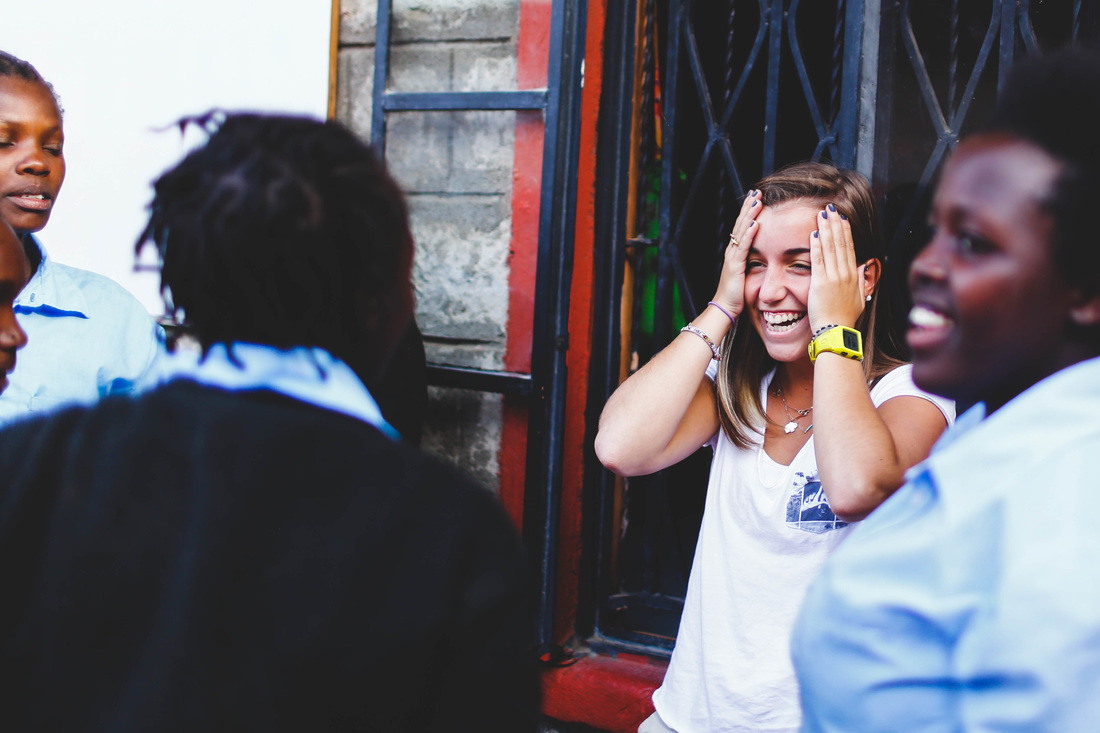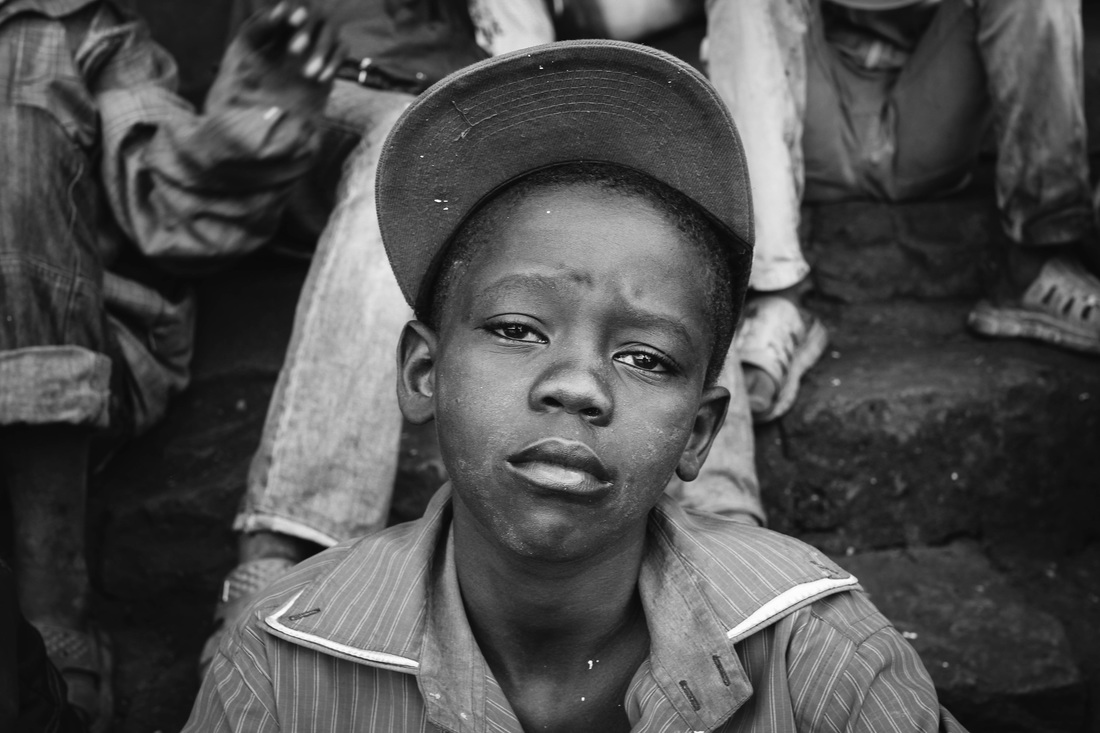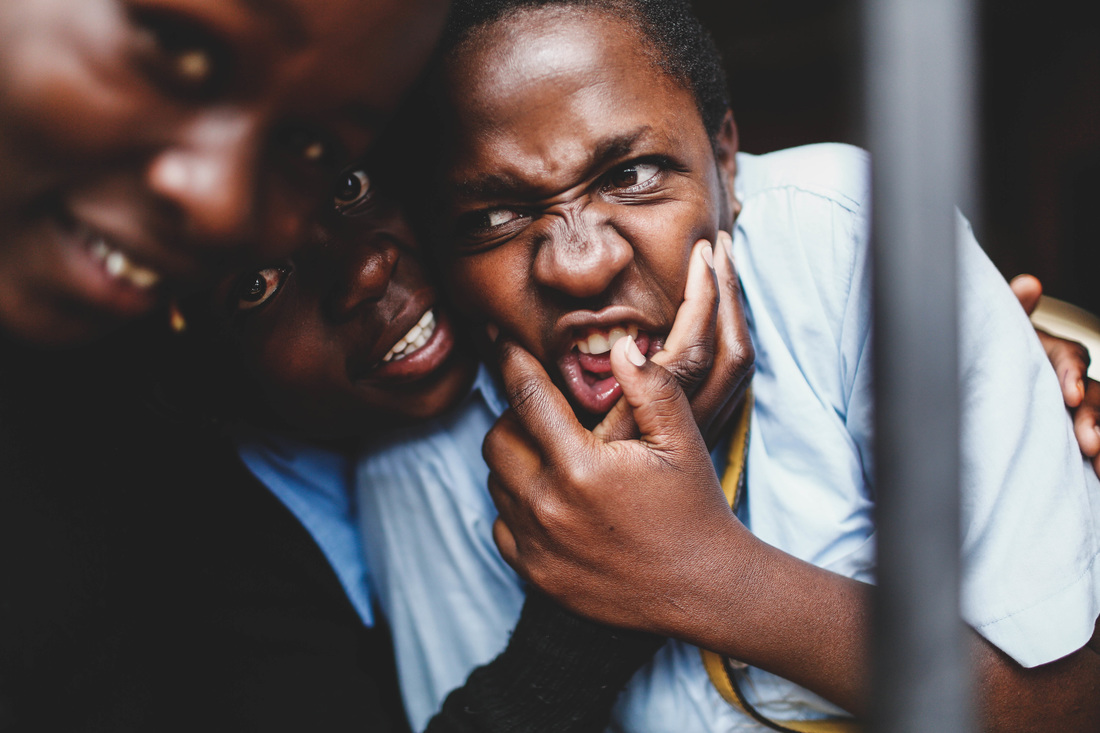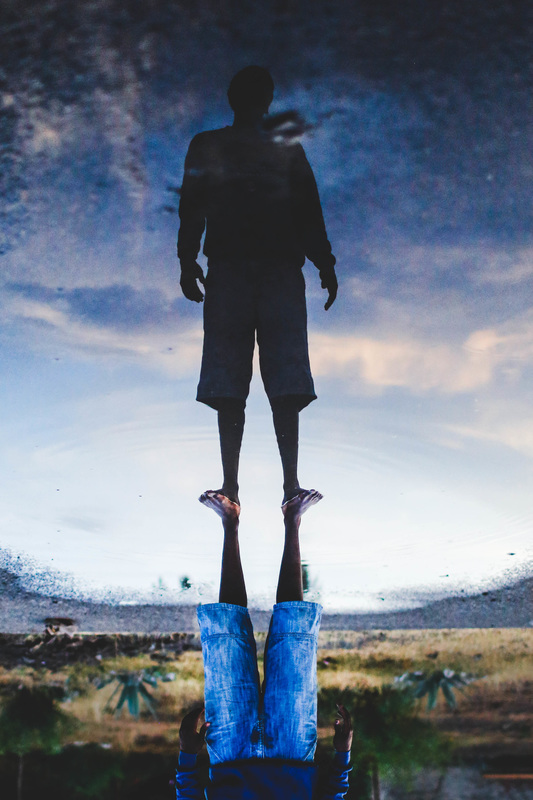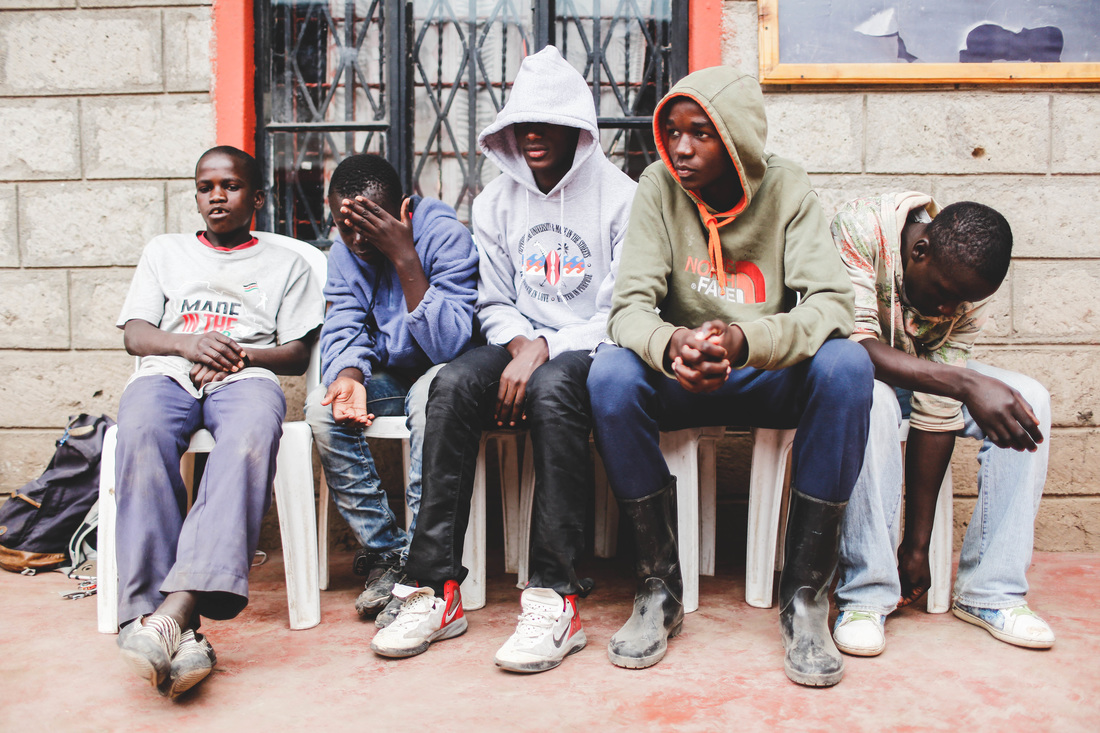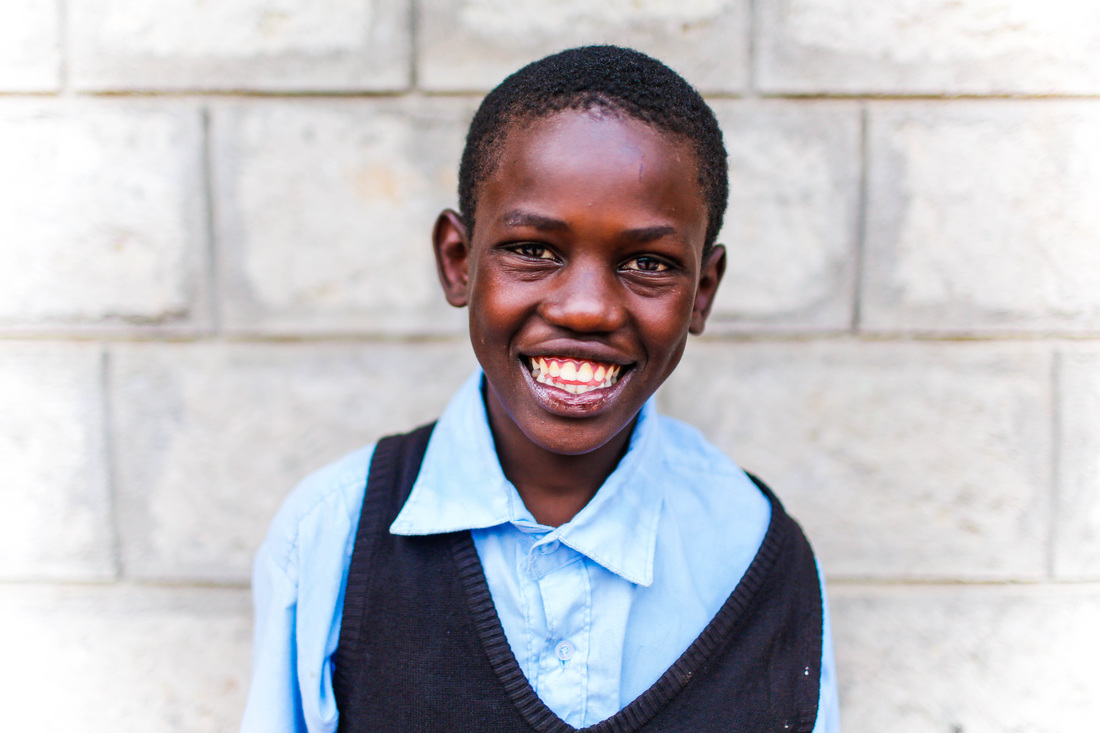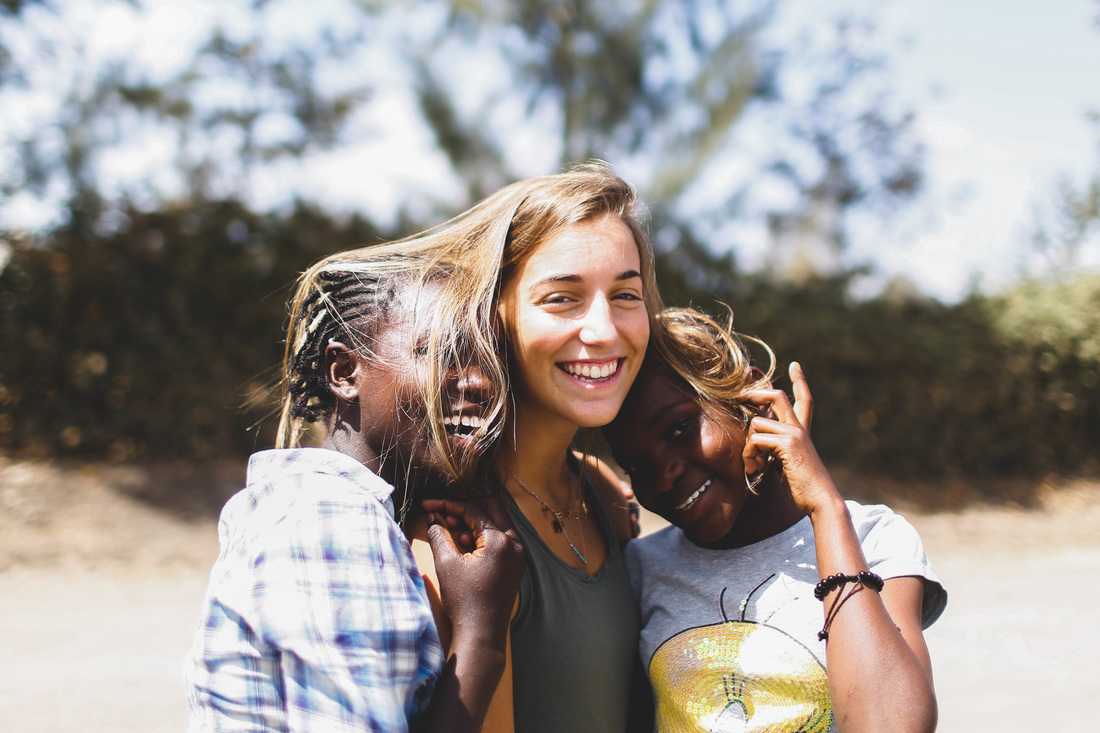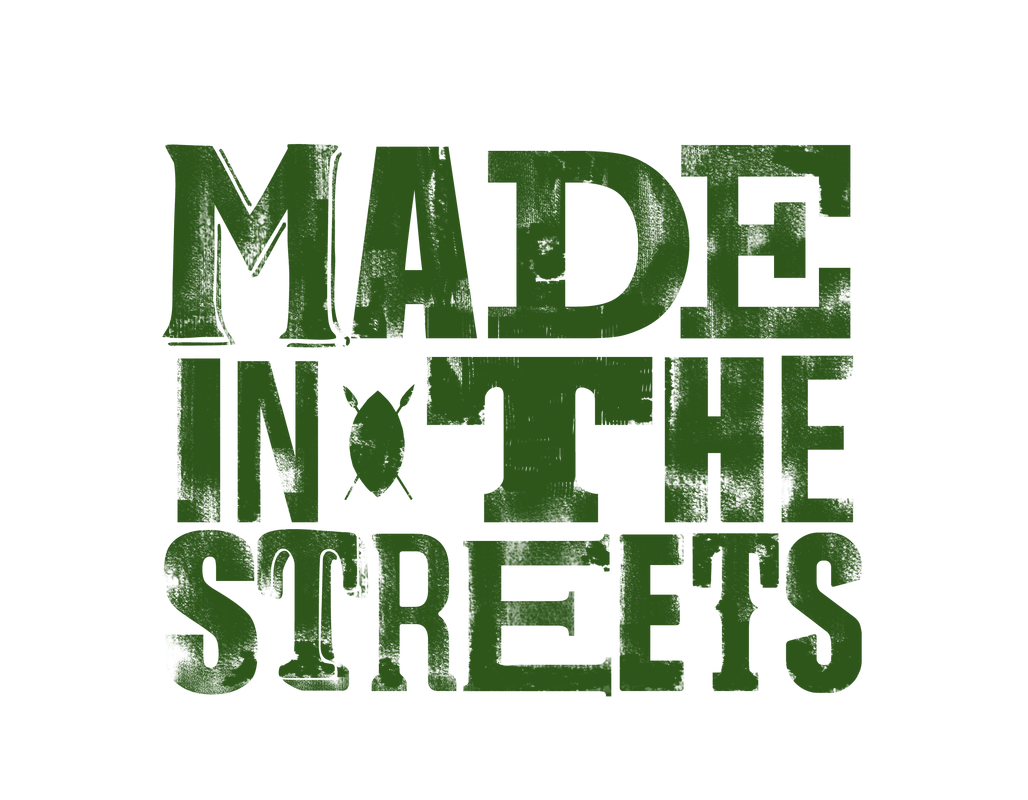|
“Come. I will show you Air Jordan.”
Jimmy backed into position, already smirking triumphantly. He momentarily glanced at his hope before sprinting and springing forth right before the three-point line, feet fluttering. You know, much like you do mid-air following the plunge off of the high dive. The ceremoniously dramatic launching of the ball amounted to, um, not three points. It lost momentum half-way to the goal and then dolefully bounced like a check. Much to our giddy delight.
0 Comments
In downtown Nairobi, just across from the Railways bus stage, in a cramped room on the uppermost floor of the Gatkim building, a peculiar fellowship gathers in the late afternoon hours of any given Sunday. If you stepped into the cool, fluorescent-lit hallways, squeezed into the perilously narrow elevator, and ascended to this meeting place, you would find a motley gathering of men and women. Cooks, bus drivers, shampoo boys, hustlers, and the occasional drug addict all attend, but everyone here shares a common background: each of these people grew up on the streets. This is Into the World, a weekly program for the MITS graduates led by power couple Jackton and Millie Omondi.
It’s easy to romanticize street ministry. Our annual intake of new students arrived from Eastleigh last week, and as the kids acclimate to the safety of Kamulu, their true personalities have begun to emerge as the drug-stained shells fall away. That kind of visible transformation makes for compelling narratives, and as the head of film production at Made in the Streets, I trumpet those narratives to anyone who will listen. Transformation is easy to brand: after all, everybody loves a ministry with visible results. Perceived progress gratifies our desire to make a difference, and that principal guides many of the stories I tell on behalf of this ministry. When I make films to document the transformative process, those films help reinforce our sponsors’ belief that their dollars have accomplished something tangible. It’s easy to romanticize street ministry, but only from a distance. Despite our best efforts, when students graduate from Made in the Streets, they still face enormous challenges. They enter a job market with a massive unemployment rate and compete against candidates with college degrees. They struggle to overcome vicious prejudice against former street kids. They return to low income communities entrenched in a mindset which doesn’t want them to succeed. In the midst of these challenges, MITS graduates must also come to terms with unresolved trauma often caused by members of their own families. Some fall in with the wrong people and return to drugs, and eventually, the street. Others tackle their problems head on, but constantly struggle to make ends meet. Jackton and Millie Omondi don’t romanticize street ministry. Over the course of two decades, they’ve worked at MITS in numerous roles, but for the past three years, these two have focused their efforts on Into the World, a weekly meeting which offers a place of community and rest for MITS alumni. Held once a week, Into the World combines Bible study with professional networking and counseling. As Millie observes, very few people in Kenya’s professional community have experienced the trauma of life on the streets, so it’s essential for former street kids to have a place to express their struggles to people who share their background. This kind of story is much harder to tell. Aside from the logistical challenges of working as a one man film crew and surviving Nairobi’s infamous traffic jams, this project required me to navigate the uncomfortable reality that sometimes love isn’t enough. Even in the two meetings I recorded for this film, the Omondis had to figure out how to love and include a former student whose drug use had caused him to lose his mind. Sometimes loving someone won’t bring them back from drug addiction, won’t keep them from the streets, won’t help them find meaning and purpose in life. But some people are brave enough to love anyway. Jackton and Millie, we see you. And we’re grateful.
MITS photojournalism intern, Kinley Cash, has only been in Kamulu a week. Born to missionary parents in Nairobi, Kenya & raised in Uganda, Kinley may be new to MITS, but she’s certainly not new to East Africa.
What led you to MITS? K: "I've known the Conways (a local missionary family) my whole life so I've grown up hearing about MITS. When I was trying to decide what my next step needed to be MITS was always on the radar." What will you be doing during your time here? K: "I am here as the photojournalism intern. So while I'm here I'll be taking pictures of anything and everything, trying to record the students daily life at MITS." "I will also be tutoring some of the kids in English when needed." What is your favorite memory from your first week here? K: "My favorite memory so far is getting to walk bases in Eastliegh. The base that we went to was super friendly and receptive and I got to finally see a part of the world that I have been hearing about for my whole life." You’ll be seeing many of Kinley’s wonderful photos on Facebook & Instagram. Karibou Kinley! Check out some shots from her first week below! I met Lucky in my first week of 13 in Kenya. He was the kid in my scavenger hunt group wearing a shirt 3 times too big for his body with a Jamaican rapper plastered on the front. He was the kid who helped me find my keys when I lost them at the soccer field, and then proceeded to joke that he wasn’t going to give them back. He was the subject of countless photos in my first few days here. I remember my dad telling me I could write a good story about a kid named Lucky. Though I certainly have not written nearly as much as I planned to this summer, I like to think that my photos can tell a good story on their own (with a few words here and there to elaborate). Lucky is a young kid and his size shows it. It is hard for me to picture him living on the streets when he is still small enough to carry in my arms and young enough to not be embarrassed by holding my hand in public. He gets hurt easily and tends to express his emotions outwardly, sometimes through anger and sometimes through tears. When he does this I am reminded of his broken past and the hardships he has faced at such a young age. The picture above, however, tells the other side of Lucky’s story. While the harder aspects of his life are ever-present, his childlike spirit shines brighter. His smile radiates love and joy and is always there to greet you when you see him. His sense of humor is that of a kid, meaning he loves to sneak up on you and play tricks and giggles nonstop when you mess with him back. He’s mischievous and loving and fun to be around. He’s the kind of kid that brings his Bible to church even though he can’t read yet, lovingly holds and takes care of a starving kitten, and jumps on a bus to give you a hug even though you’ve only been gone for a few days. He’s the kind of kid that brings his Bible to church even though he can’t read yet. For many of the kids here, the streets have robbed much of their childhood and it would be easy to think that this would dampen their spirits. I have been privileged enough to see the way this assumption is proven wrong every day at MITS. Lucky’s youth shines through in every moment of every day. I am moved and inspired when I think of the way coming to MITS has given Lucky a second chance at just being a kid, with all the wonder and ups and downs that that brings. Lucky’s story is just like every other student’s here, too. They have all faced the world in a way no kid should ever have to, but they have come out on the other side. While they still have many challenges to face and a whole rollercoaster of a lifetime ahead of them, they have proven they are resilient in the face of hardships and have the strength to keep up hope and wonder when it seems like there should be no more. They are, simply put, incredible and I am lucky (wink wink) to have had the chance to learn from them and love on them all summer.
To say I’ve learned a lot from my time in Kenya would be quite an understatement. From the moment I arrived, it’s been full of learning- about myself, about these kids, about culture, and about, well, everything else in life. And not that I learn from and about these kids better than other people do, but I do think I get a unique perspective of learning that not everyone else does. You see, my job here is to watch these kids closely, literally. As a photojournalist for MITS, it is my duty to keep my eyes glued to the kids waiting to capture that special moment. While other visitors teach classes, organize game days, etc., I am here, from a job perspective, primarily, to simply pay attention. Now, I want to clarify something before I continue. Being a photojournalist is extremely different than being a photographer, and that’s honestly taken quite a process for me to learn. You see, as a photographer back in the States, all of my photos are about me creating. I frame a landscape the exact way I want to. I pose a model precisely as I’ve envisioned. And all of this is to create something in my mind that, in some ways, did not exist beforehand. It’s all about creating. Here, being a photojournalist, it’s totally different. My job isn’t to set up a beautiful landscape shot. My job isn’t to pose these kids in some sort of way. My job is to witness, to document, and to capture these kids in their everyday lives in the most natural and accurate way possible. And from that, I see what they see. I learn their habits. I understand their personalities better without even having to say a word. So, because of that, here’s just a few things, some serious and some not so much, that I’ve learned along the way: 1.) Kenyans don’t mess around on birthdays. Kenyans have a tradition of “washing” you on your birthday. At first, this doesn’t sound so bad. Everyone loves a good shower right? Well, these kids will literally put mud and stones in water solely to throw all over you. Because of this, only in Kenya would it make sense to lock yourself in your room and have no contact with anyone on your birthday. 2.) Fist bumps are for EVERYONE. No seriously, it’s amazing. Toddlers, teens, adults, even the elderly! In Kenya, it’s completely normal for a 70 year old woman to walk into the room and give you a fist bump. America needs to catch on. 3.) When kids find a song they love, they will listen to that song, and that song only for the rest of eternity. This photo was taken while the kids were listening to Hotline Bling for the 7th time in a row. 4.) Always accept a free ride. Here, we walk just about everywhere. So, when your prayers are answered and a truck drives by, even if you have never met the person who is driving the truck, you hop on the back and enjoy the heck out of that joyride. 5.) These kids have dreams. Every kid I talk to, no matter what background he came from, has this amazing dream that they want to pursue. And when I say these kids have dreams, I mean big dreams. They were all once street kids who the rest of the world viewed as impossible cases. So, let’s just say that the word impossible doesn’t mean a whole lot to them. 6.) Every Kenyan is ripped. It’s hilarious, annoying, and extremely impressive. This kid pictured, who will go unnamed, constantly complains about how he’s gotten fat and has a belly now (and he’s being completely serious when he says that….) 7.) God has given superpowers to Kenyan hands. They’ll pick up a pan with their bare hands off the stove. I’ve seen an elderly woman pick up a hot coal off of a fire, hold it in her hands, and then look at me and just laugh. And I’m over here struggling to hold my coffee mug without getting burned… 8.) Swag is everything. Or, as they say here- looking “smart.” Constantly changing hairstyles, crazy glasses, and literally anything they can do to look swag, these kids will do. 9.) Everyone has a signature pose. When a kid asks for a picture, 9 times out of 10, they will do the exact same pose they always do. There’s beauty in being dedicated to your craft. 10.) Don’t be afraid to get your hands, or uniforms, dirty. These kids will draw on their uniforms, work in the farm in them, play basketball in them, and even dive into a field to crawl their way to tackle a sheep in them. True story. 11.) Don’t give out of wealth, but give out of compassion. These kids, even the ones still on the streets, share more than anyone I’ve ever met. Kids who may not have money to buy dinner will be the first one to split a snack 5 different ways if it’ll help feed their friends as well. They don’t wait until they have a lot to start sharing and giving. They do it whenever they get the chance, no matter how little or how much they have. 12.) All for one, one for all. Nothing is done alone. Everything is done together. Maybe it’s because they learned to survive on the streets by relying on each other, but these kids never leave each other. It’s very rare to see one hanging out by himself. They stay in their packs. Their friendships are tighter than almost anything. So, if I invite one kid to play basketball with me, ten will show up. Because you don’t break up the squad. 13.) Kenyans have the best smiles. Even these kids who currently live on the streets and almost never brush their teeth have the whitest smiles. Like, would you look at the grill on this kid? Dang. *currently fighting the urge to stop brushing my teeth for a month to see if it’ll make my teeth look like this* 14.) Entertainment can be found in anything. Rodgers here decided he’d break a pen to put all the blue ink in his mouth so he’d have a blue smile, just for kicks and giggles.
by Hillary Sturgeon For years, photography has been an interest of mine. Though in this day and age everyone is capable of being a photographer with the newest iPhone, I still find solace through the comfort of my camera and the artistic expression in photography. It has been a personal joy and deeply personal for me as a way to connect with others and the world around me. For this reason, I have struggled to understand how I might use my photography to help others. I knew how taking pictures at Made in the Streets would help the organization as a whole, but until I got here I was lost on how I could use this talent to specifically help the students at MITS. I had to take a look at the way pictures have influenced my own life. In order to figure out how pictures can improve the lives of these former street kids, I had to take a look at the way pictures have influenced my own life. I thought about the vast number of times I have grabbed the boxes of pictures at home and spent hours perusing the old photos, thinking about the stories, trips, and adventures that inspired the moments in them. I thought about how my photos of friends and family were the first things I put on my walls when I got to college. Pictures have helped me remember the moments throughout my life and have helped me connect with family and friends even when they have seemed far away. Now my experiences with photos revolve around the students here at MITS. One of my distinct memories from my first trip to Kamulu was of how much the students loved to have their pictures taken. The girls tend to have a full photo shoot, complete with all of their friends and various poses, while the boys stare at the camera and attempt to look as cool as possible. They like to take my phone to look through ALL of my pictures, and they absolutely love when visitors send printed copies of photos from their trips. Despite absolutely loving photography and pictures, however, I can’t help but become frustrated when the kids are constantly asking to look through my albums, or ask me to “take me photo” every time I have my camera out. It becomes hard to not draw attention and easy to become a distraction. When I become frustrated, I start to think of myself and about how much of an inconvenience it is for me. In times like this, I forget who I am here for. In the end, I am in Kenya for every child here at MITS. I have come to realize that these kids love pictures for all the same reasons I do. Their lives have most likely never been documented before coming to MITS, and now they are taking every chance they can get to seal every good moment in time. I often forget that these are some of the first visual representations of their lives they have ever seen and it is exciting for them. Finally they are able to remember their stories in a way they were unable to in the past, and see the way their lives have changed for the better since they arrived at MITS. Now when I think about the way photography can be used to support these kids, I think of their beautiful smiles on the other side of my lens and of their excitement when they show me the photos proudly displayed in their rooms. With this mindset, the most important part of my job becomes remembering to keep an eye out for the important moments in each student’s life and capturing them. All of a sudden, a personal joy of mine, something that seemed so private and intimate, is transformed into something I can share with these students to bring joy to their lives, and that is more than I could have ever asked for.
I don't really know how to go about writing this article. I've actually been avoiding it for quite some time, but I don't think I can put it off anymore. Honestly, I'm actually a little afraid of where this is going to go. I'm afraid of revealing more about myself than I want to. I'm afraid of the emotion that it will stir up in me. I just don't want to write this, but it has been on my heart for a few weeks now, and I need to say it. You may all hate it. It may be the most poorly written blog post in history, but I think that I need to say this for me. So far, this summer has had some major ups and downs. It's been an absolute roller coaster. There have been days of absolute joy. I mean days packed full of laughter, friendship, and Jesus. However, there have also been some pretty tough days. Days filled with confusion, pain, and questions. Now, don't get me wrong, I am happy. The internship has, for the most part, gone very well. It's life outside of the internship that's been tough. You see, there's been a bit of a theme that has developed around me for the last several weeks. Unfortunately, that theme is death. It's a weird thing isn't it? Death, that is. The fact that someone is alive, breathing, thinking, and existing in one moment. Then the next moment, gone. We don't get to have them in our lives anymore. They vanish. Leaving us with great memories, deep love, and a longing for their return. Since the beginning of this summer there have been a ridiculous amount of people that I know that have died. First, was my long-time childhood friend, Mackenzie Hess. Kenzie was the first person my age that I have ever really known that has died. Then, a student from the youth group I worked with last summer, Luke Logan. An awesome kid that is deeply missed by so many. After that, my next door neighbor, Wayne Wright. On top of all of that, two of our students here at MITS have lost loved ones in our five short weeks in Kamulu. Then, of course, this vile, atrocious, disgusting, horrifying massacre in Orlando. I have no words. My heart hurts. Up until a couple of years ago, I don't think that I responded to situations like these appropriately. You see, my heart had hardened. I had gone numb. If these things had happened a couple of years ago I would have completely shrugged it off. I would have been thinking, "Well, that's the world we live in. Nothing I can do about it now." It would have no impact on me. I pray that I never return to being such a hardened person. You see, that is not how God made me... And now here comes the hard part for me. The person that God created me to be is actually an extremely emotional person. I hate admitting that, which is just plain stupid, but it's true. I spend way too much time trying to hide from my emotions, but that is who I am. I am constantly trying to make people believe that I am this tough, emotionless guy, but I'm just not. That's not who I am, and, as hard as it is at times, I am so happy with the person that God made me to be. I know that He created me this way for a reason and I hope that I never get in the way of that again. There have been a few times this summer that I have been completely overcome with emotion, but two in particular have been very comforting to me. Both of these things came around the dinner table. Once as a guest and once as a host. In these moments, I saw what I believe to be the most powerful force on Earth at work. I got to feel the comfort, peace, and love of God's family. As I have been reflecting on these moments, I have found overwhelming peace. I have found peace with the death of so many around me. I have found peace with my struggles and insecurities. I have found peace with the ways of the world. You see, none of those things matter. My struggles and fears can be beaten. The world will pass away. Death itself loses. It's already been defeated. The Savior of the World beat it single-handedly about 2000 years ago. Now, we don't have to fear it. Is life still hard? Absolutely. Unfair when people die too young? No doubt, but this is where we can find our comfort. Remember that super powerful force that I was talking about a second ago? Well, it's not confined to this world. It transcends all of this. God's family is more powerful than our fears. It's bigger than you and me. And, yes, it's even stronger than death itself. I've recently been reminded that it is okay to laugh. It is okay to cry, but we need both. I've also been reminded to simply tell people what needs to be said. This is something I struggle with. I am really bad about telling people that I care about them. I think it comes from that whole fake tough guy thing. I'm working on it, but right now, I want you to know something. I want you to know that you don't have to be afraid. You don't have to struggle. You don't have to feel alone. You are welcome and wanted in the family of God. Or maybe you're a part of it, but it doesn't always feel that way. I get that too. But please, read this and believe it. You are so loved. More than you could ever possibly imagine. People who don't even know you love you. The people around you everyday love you and need you. I love you. But most important of all, the Creator of the Universe loves you. Really think about this. Please. A God so big that He created this infinitely big universe thinks that you are worthy of His love and affection. That must mean that you're pretty special. Through Jesus and His life, we get to be a part of this family that knows no borders. It is everywhere. It knows no boundaries at all actually. Those in this family have a bond greater than any other. On top of all of that, when this life is said and done, when this world is gone, when all other families cease to exist, God's family keeps going. The best part about it all? It's open to everyone and there's always more room around this table. Please come and partake. ---------- A post by Cody Poinsett It is the twilight of yet another busy dusk. The cars are stuck in a traffic jam and crowded in disorganized orientation. This is my hometown. Our bus is stuffy, and all windows are closed. Someone sneezes from the back. The stench is overwhelming. I use my fingers to block my nose but that is no cure. I look at the lady seated next to me, she is blocking her nose too. I feign a smile and ask her to kindly open the car windows. She instantly frowns and twist her lips in contempt then she looks away. A few moments pass, the traffic jam is still in stagnation. “The stench is too much in here, tafadhali fungua dirisha! (Please open the window!)” I yell back at her after a few moments of impatience. “Are you blind?” She replies. “Can’t you see these mongrels are all over the window? Or do you want to be robbed by their filthy hands?” she exclaims with a disoriented attitude before twisting her lips in contempt once again. Just then I look beyond the tinted window panes. I see them, the “mongrels” scattered all over the drizzling evening rain. They are carrying bags or rugs and wearing tattered clothes. Some are sniffing glue while others gazing into the windows of the cars pleading for coins. Some have fallen asleep along the alleys, maybe out of hunger or out of exhaustion. Just then the road is cleared, and the bus begins to move. The passenger seated next to the driver throws a coin through the window. It rolls over and falls in front of our bus, in the headlights I see them scramble and fight for the coin, like vultures on a carcass. It’s a game for survival, some are knocked down, some give up and some keeps fighting. The passengers are bored with this drama, it’s a typical scene in my hometown. The driver hoots in an impatient frequency but the loud sound falls on deaf ears. The scramble persists, but the driver must go. The engine is ignited and the bus starts to move. “These kids are very rude and silly, they lack manners!” Someone exclaims from the back as we drive home. That was last year. It’s the dawn of a calm Sunday, at Kamulu Church of Christ. A tranquilizing worship can be heard echoing from a distance. The title of the hymn is “Who Am I?’’ by Casting Crowns. I am part of the congregation and I meet them again! The “mongrels.” They are carrying hymn books but reading the song from within their heart. Their voices are harmonized and they are exalting Almighty for what he has done in their lives. But this time round, they don’t look filthy, their faces are glowing with precious joy. Their hair neatly kept and their clothes are well furnished. They are under the courtesy and tender care of Made in the Streets (MITS). Just then, a trigger of my past memories are evoked from my mind. My mind wanders away from the church. I remember when I saw them last year. I juxtapose these two scenarios and wonder if I am a dreamer. A sense of guilt hits my mind, was I wrong not to stand up for them? Today they look so normal and human. How come it took me so long to feel their plight? How come the passengers in that bus could not see them with this new perspective? What blocked the mind of the driver who was busy hooting and shouting at them? They are children, our children, innocent children. “Not because of who I am, but because of what You’ve done. Not because of what I’ve done, but because of who You are.” That is the chorus of the hymn, it touched my inner most heart and brought my wandering mind back to church. If you look at people and judge them, then you have no time love them. That was the message of Christ, he lived and taught us how to live with one another in harmony and eternal love. So where did all these street kids come from? Who brought them here? If we truly love them and cherish them then our streets will free them from the bondage of turmoil and slavery. When we reign in the tendency of judging these innocent souls and classifying them as “mongrels” we forget to remember who we are. But for today, the sun will rise and set both for the kids and the kings, and in the end we are all human beings dying and desperately in need for love. I am just saying. Guest post from George Asimba, MITS intern.
If you want to know what Full Life looks like, I advise you to come to Kenya… Just kidding. I mean, we all know that full life can be found anywhere and isn’t dependent on circumstances or environment but what is within each of us. If the strength within us is from the big guy upstairs, we will understand and view the world with the perspective of this full life we always hear about. The first person who truly explained to me what full life is, was my young life leader in High School. He shared with us a verse that changed all of my days from that moment on. That verse was John 10:10: The thief comes to steal, kill, and destroy, but I have come so that you may have life and have it to the full. I shared this verse with some of the men on the streets in Eastleigh. Full Life. I became so aware of it and I took notice in those who were experiencing it on a day-to-day basis. You learn to have an eye for it. You can see it in a random stranger walking down the street, even. And you can tell when the gears are turning in the mind of a person figuring it all out until it finally just clicks. Full life is everywhere. The difference with full life here in Kenya, is that it is more evident in my eyes because the transformations go from a way of life that is foreign to me, to a way of life that is so familiar because it looks like God. The people at MITS are to blame for this radical transformation. They know where it comes from and how to share it…
The students here in Kamulu are reaping the benefits of this unconditional love they are experiencing. I see confidence in each and every one of them. I see love and I see selflessness. I find myself in awe of them constantly. They blow me away with the way they treat each other and the way they treat me. When it rains, they help wash each other’s and the teachers’ gumboots. Even if that means getting down on their hands and knees in the mud to really make sure they get the boots clean. They treat each other to lollipops and share their birthday cake. They listen without interruption and they love each other even more after bickering. They share a pair of sandals when playing football on the courts so that their kicking feet are covered. They treat me like I am one of their own and they show me such love—love I haven’t really ever experienced before like this. All of these traits may seem small but they come from hearts that are big and overflowing, allowing them to pour out even more. I love to watch the older students spending time with the younger ones and showing them a Godly way to live. I will see a boy about to graduate reading the word and then later that day see a boy, who just joined MITS this year and cant even read English yet, picking up a bible in attempts to read it. This isn’t coincidence—these boys are working off of each other and learning from each other for God. When I go to Eastleigh and I see the street kids at boy’s program or at the bases, I am constantly shocked and taken aback because I find it almost impossible to envision our students ever in this situation. I can’t picture their eyes glazed over from the glue and I cant picture them stealing from each other. I can’t picture their faces torn and worn and dull because all I see now is their faces glowing with light from within. I don’t know how they are able to love me and teach me so much with so much grace when I look at where they come from. It seems like an impossible transformation. But then again, I guess God’s work is usually unexplainably mysterious in how it works.
Today's guest post comes from Annie Sencindiver, MITS intern fall/winter 2015.
It's been brought to my attention by the people who know me best that they know nothing about my daily life at Made in the Streets in Kamulu. I can't really say that's an accident-- describing experiences while they're happening has always been difficult for me. It's also especially hard to sum up the people here in just a few descriptors, so everyone from home has been getting the, "It's been great, the kids are incredible, and you should probably just come visit yourself!" I know, I should really work on that. But for now, I'm going to attempt to sum up what a typical day here might be like! 7:45 AM: Roll out of bed. Please envision below a sunrise picture that I have never taken because I have yet to wake up to watch the sunrise. Say good morning to the littlest neighbors who shout from a distance in their littlest voices, "HOW ARE YOU!!!" Little people, big love. It's about a 5-10 minute walk from where I live at the Intern House, so that gives you an idea for how great I look in the morning. 8 AM: Morning chapel. Well, more realistically, 8:07 for me because we're working on Kenyan time! 8:30 AM: Staff meeting. Discussions to help me feel like a grown up with responsibilities. 9 AM: Breakfast by ELIZA!!!! She cooks for us and is just about the best. Breakfast usually consists of chai (so much chai on the daily) and mandazi, which is kind of like donuts, so I'm a happy cookie. We're actually also supposed to eat at 7 AM, but, you know, sleep. 9:30 AM - 1 PM: Working in either the Learning Centre if the wifi is working or hanging out with the older kids in the Skills Centre. Take pictures of them while they monkey around between class. Did I mention there's a monkey in Kamulu? Well, I think I found it. 1 PM: Lunch. The Culinary kids often cook at the Skills Centre, but I'm usually closer to the Learning Centre so I'll either eat at M House with other American visitors or at the Learning Centre. Chapati is my favorite. I've also developed a slight Coke addiction while here. The soda. Either way, I can always count on Moses to save me "leftovers" from Skills. I've been informed by Maina that those "leftovers" are actually the best of the best, so I feel pretty special. If there's any more computer work to be done, I finish that before the Learning Centre closes. Otherwise, I'm free to take photos and play! It isn't the worst that those are some major job responsibilities. 5:15 PM: Evening Chai with the kids. Obviously not going to miss out on that. 5:30 PM: I usually head over to the boy's compound or the soccer field to take pictures of the kids playing and semi-participate (with my eyes). Watch Jacob further endanger his crippled self. On the way, without fail, these two boys will run up greeting me (often rolling wheels) screaming, "TAKE A PICTURE!!!!." I oblige. Every time. And sometimes we walk to the shops to get 40 cent movies! Oh, Kenya. 6:30- 7 PM: Watch the sunset. Soak it all in. This is also about the time I usually give Moses "lessons" in using my camera. If we're being honest, that usually means handing it over and making him figure it out. I'll have to do another post on all these people I keep mentioning too, and why they're the best people to have here. 7 PM: Dinner! Followed by some combination of movies, telling stories, reading, hanging out with Nancy (honorary mother) and Victor (honorary little brother), getting bitten by bugs, Instagramming, making the kids/interns hang out with my because my house is eerily quiet at night, and BED so early. And of course, catching the last of the light. Every day is DIFFERENT and I hope I can relate the highlights as the days go on. But there you have it! A day in the life, sweet, abundant life. Just like one of the kids said, "My prayer is to come out of Kamulu better than I came in." This is still just the beginning. To follow more of Safeena's adventures in Kamulu, visit www.safeenapadder.com.
|
When you do this for 27 years, you're bound to pick up a few stories and lessons along the way. Thoughts, impressions, news, and highlights from our staff, visitors, donors, students and alumni.
Archives
March 2024
Categories
All
have you
|
MADE IN THE STREETS is a 501(c)3 nonprofit organization. Federal Tax ID #20-4044723
409 Franklin Road | Brentwood, TN 37027 | ©2023 MADE IN THE STREETS | site by cecily | PRIVACY POLICY
409 Franklin Road | Brentwood, TN 37027 | ©2023 MADE IN THE STREETS | site by cecily | PRIVACY POLICY

